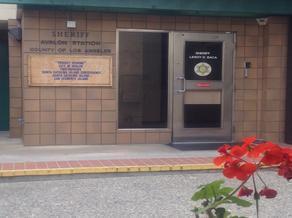Avalon’s sewer and salt water fees are likely to increase to offset the cost of mandated repairs to the city’s water systems.
The Avalon City Council voted unanimously on Tuesday, June 4, to introduce an ordinance to increase the rates the city charges for sewer and salt water service on Catalina Island. The fee increase requires a four-fifths vote to pass. The council will vote on whether to adopt the ordinance at the next meeting.
Avalon’s sewer and salt water fees are likely to increase to offset the cost of mandated repairs to the city’s water systems.
The Avalon City Council voted unanimously on Tuesday, June 4, to introduce an ordinance to increase the rates the city charges for sewer and salt water service on Catalina Island. The fee increase requires a four-fifths vote to pass. The council will vote on whether to adopt the ordinance at the next meeting.
The vote to introduce the fee increases came following a public hearing. No member of the public attended at the meeting.
City Attorney Scott Campbell said the council could raise rates or take the money from other city funds.
He said Avalon has to spend the money because the state has mandated that Avalon make improvements to the water systems.
Council Member Ralph Morrow asked if the council could carry the item over to the next meeting since no one was there.
Campbell said the council would have to vote on the ordinance again at the next meeting.
Morrow said he wanted to let the public know that if they are going to complain about rates going up, they better be at the next council meeting.
Interim City Manager Denise Radde said that staff sent notices to Avalon property owners.
She said if 50 percent, plus one, of the property owners had protested the proposed fee increases, the process would have stopped.
The city received five letters in response to the proposed fee increases—four opposing the increases and one favoring them.
According to the staff report prepared by Radde, the cost of complying with the cease and desist order from the California Regional Water Quality Control Board has been conservatively put at more than $750,000 a year.
Radde’s report said that if Avalon does not comply with the Water Board’s order, the city could face a state takeover of the sewer system and daily fines.
If the rate increases are approved, the annual residential sewer rate will increase by $43.27 per home.
Public showers will cost $14.36 more per shower each year. The sewer rate for each hotel room will go up $21.73 a year. The sewer rate for offices and shops will go up $43.27 a year.
Restaurant sewer fees will go up depending on whether they are take out restaurants, bars/restaurants that seat less than 100 customers or bars/restaurants that seat more than 100 customers.
The larger restaurants would see sewer fees increase by $194.55 a year.
Saltwater service fees would increase by $18.61 a year for homeowners; $12.42 per room per year for hotels and by $12.42 for each toilet at commercial establishments.
Audra McDonald, administrative analyst for Avalon, said the city was seeking recognition as a disadvantaged city from both the U.S. Department of Agriculture and the state Water Board. However, the state and federal agencies use different figures to define cities as disadvantaged.
She said Avalon is already below the threshold to qualify for disadvantage status from the USDA.
However, the median household income for Avalon is $208 more than the figure set by the state Water Board.









